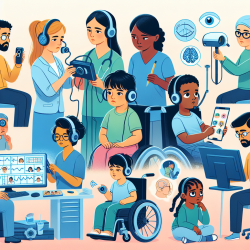Introduction
In the evolving landscape of healthcare, it is crucial for practitioners to be well-versed in the unique needs of transgender individuals. The research article titled "Transgender health care: improving medical students’ and residents’ training and awareness" underscores the necessity of integrating transgender health into medical education. This blog explores how practitioners can enhance their skills by implementing the research outcomes and encourages further exploration into this critical area.
Understanding the Research
The research highlights significant gaps in medical education concerning transgender health. Despite the growing visibility of transgender issues, medical curricula often lack comprehensive training in this area. The study reveals that most educational interventions are short-term and primarily focus on improving attitudes rather than developing clinical skills.
Implementing Research Outcomes
To address these gaps, practitioners can take the following steps:
- Advocate for Curriculum Changes: Work within your institution to advocate for the inclusion of transgender health topics in medical education. This includes pushing for longitudinally integrated and clinical skills-based pedagogical interventions.
- Engage in Continuous Learning: Attend workshops, webinars, and conferences that focus on transgender health. This will not only enhance your knowledge but also provide networking opportunities with other professionals committed to this cause.
- Develop Clinical Competency: Seek out opportunities for clinical exposure to transgender patients. Practical experience is invaluable in developing the necessary skills to provide competent care.
- Utilize Available Resources: Leverage online resources and publications that offer guidance on transgender health care. Organizations like the World Professional Association for Transgender Health (WPATH) provide standards of care that can be integrated into practice.
Encouraging Further Research
While implementing these strategies can significantly improve practitioner competency, there is still a need for further research. Practitioners are encouraged to contribute to this field by participating in studies, sharing best practices, and advocating for more comprehensive research on transgender health education.
Conclusion
Enhancing skills in transgender health care is not only a professional responsibility but also a step towards reducing health inequities faced by transgender individuals. By implementing the research outcomes and engaging in continuous learning, practitioners can play a pivotal role in transforming healthcare for this underserved population.
To read the original research paper, please follow this link: Transgender health care: improving medical students’ and residents’ training and awareness.










